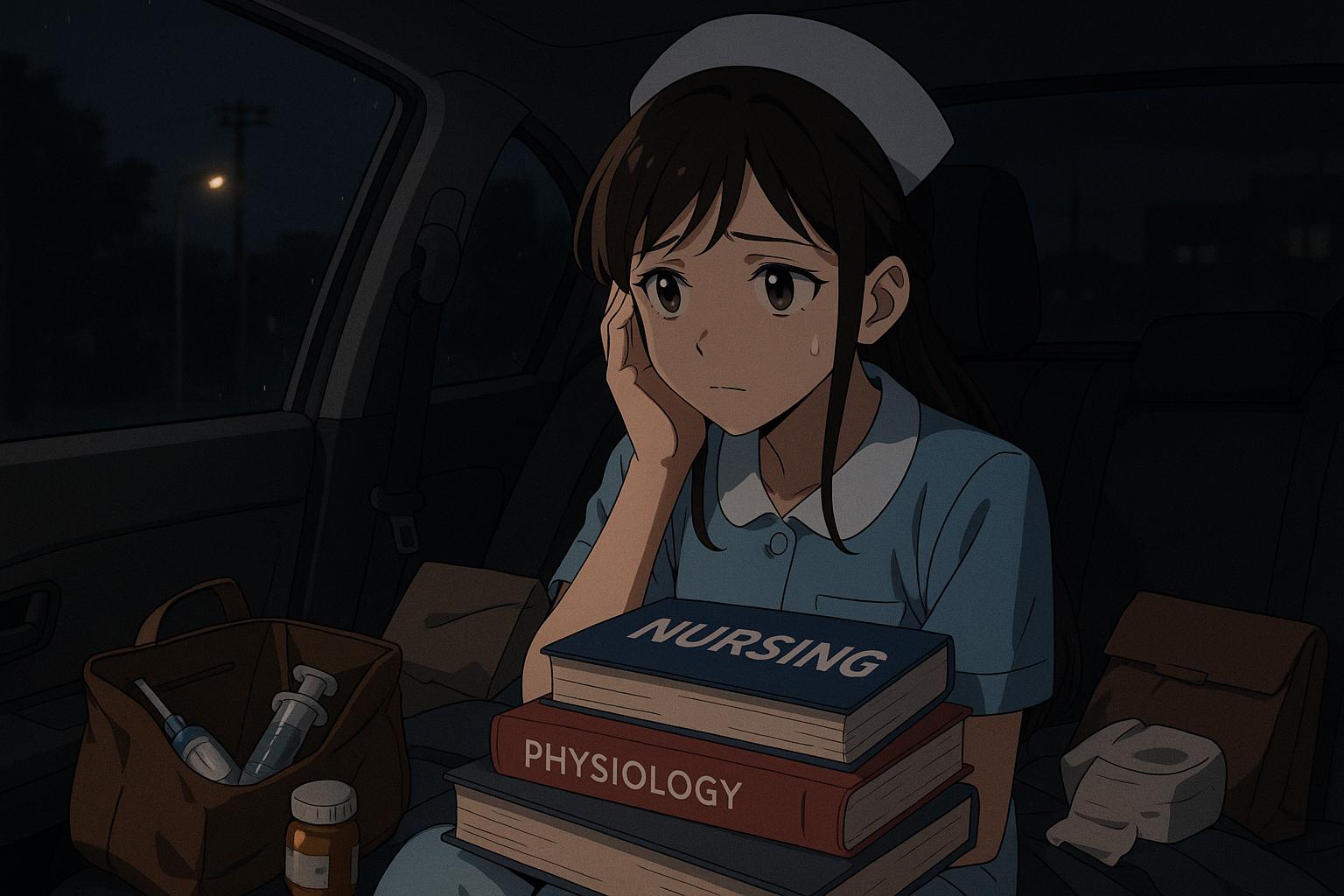Financial hardship is pushing student nurses into dire circumstances, with reports of individuals forced to sleep in their vehicles and rely on food banks to meet basic needs. This alarming situation has prompted the Royal College of Nursing (RCN) to escalate calls for enhanced financial support from the government, highlighting a crisis affecting the future of nursing education and the staffing of the NHS.
According to the RCN, the current level of financial assistance fails to meet the escalating living costs faced by student nurses. General Secretary and Chief Executive Professor Nicola Ranger described the scenario as “disgusting,” lamenting that students pursuing careers in nursing are burdened with debt and struggling to secure employment upon graduation, despite widespread vacancies within the sector. The RCN's concerns underscore a broader issue of inadequate financial support for healthcare students that is adversely impacting mental health and academic performance, with a staggering 99% of nursing students stating they are worried about their finances.
The findings are echoed in a variety of surveys; for instance, a study conducted by RCN Scotland showed that 74% of nursing students felt a high level of stress due to financial pressure, which in turn hampers their academic pursuits. Many students report needing to work excessively long hours to support themselves during their studies—an unsustainable model which some argue might inevitably lead to an exodus from the profession. Indeed, a shocking 58% of nursing students claim that financial worries significantly detract from their ability to perform academically, and a significant number are now contemplating dropping out due to these pressures.
The reality of these struggles is poignantly illustrated by the experience of Jess Dodds, a 29-year-old nursing student from the West Midlands. During her first year, she was left homeless and resorted to sleeping in her car to attend classes. Dodds spoke candidly about the emotional toll of pretending to be fine while grappling with financial insecurity and a lack of basic necessities. Her experience is not isolated; lecturers at her university are reportedly providing students with lists of local food banks, an indication of the desperation faced by many in the nursing cohort.
Historically, the situation worsened significantly after the government removed maintenance grants for nursing students in 2017, which had previously provided critical financial support. The elimination of these grants has resulted in many nursing students becoming increasingly reliant on part-time work, often to the detriment of their studies. Critics argue that had these bursaries remained in place, students like Dodds would have had the financial backing to secure accommodation more swiftly and avoid the trauma of homelessness.
As applications to nursing courses continue to decline—evidenced by a drop from 45,090 applicants in January 2017 to just 31,100 in 2024—the situation is becoming increasingly unsustainable. The RCN has flagged concerning statistics, revealing that applications to nursing courses collapsed by 35% in 2021 compared to previous years. Amidst these challenges, students are also facing obstacles in securing positions post-graduation; reports indicate many are struggling to find jobs in a sector aiming to reduce reliance on agency staff.
Acknowledging the pressing issue, a government spokesperson has stated that the situation is “shocking and deeply saddening,” labelling it a reflection of a “broken NHS” characterised by an overworked and undervalued workforce. The spokesperson cited government measures to assist student nurses, including a grant of £5,000 per academic year on top of maintenance and tuition fee loans, though many in the profession remain sceptical about the sufficiency of this support.
As healthcare continues to grapple with staffing shortages and rising demand, the need for a comprehensive reassessment of financial support for nursing students has never been more urgent. Until substantial changes are made, the healthcare system risks driving away the very individuals essential to its future sustainability.
Reference Map:
- Paragraph 1: [1]
- Paragraph 2: [1], [3]
- Paragraph 3: [2], [3]
- Paragraph 4: [1], [4]
- Paragraph 5: [1], [2]
- Paragraph 6: [1], [4], [5]
- Paragraph 7: [1], [3], [7]
- Paragraph 8: [1], [6]
- Paragraph 9: [1]
Source: Noah Wire Services
